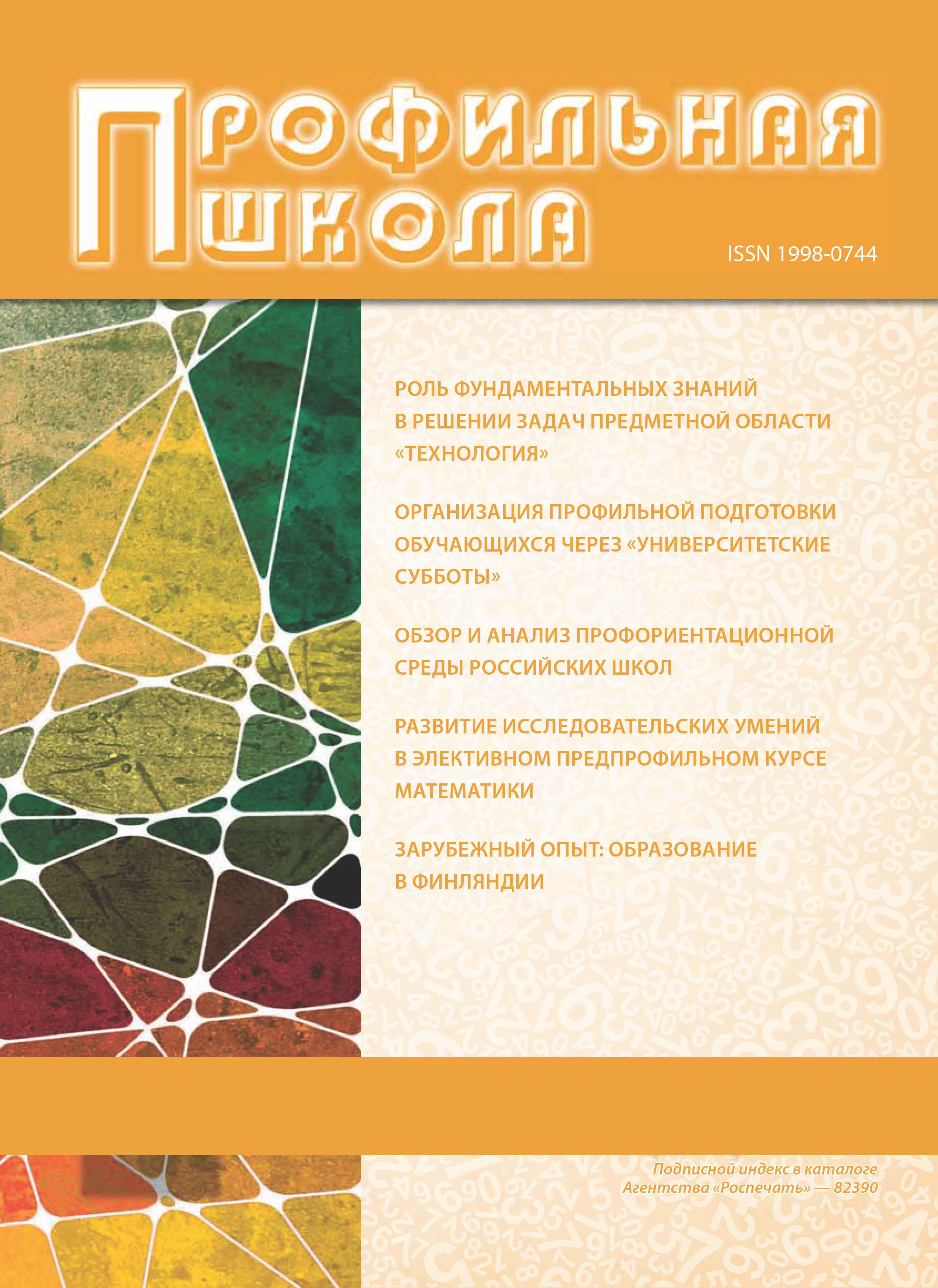Russian Federation
Modern life sets its priorities: not a simple knowledge of facts, not skills as such, but the ability to use what is acquired; not the amount of information, but the ability to get it and model; not consumerism, but creation and cooperation. Possession of these competencies by fifteen-year-old students is assessed in the international PISA study. To solve one of the key tasks of the national project "Education" - by 2024 to enter the TOP-10 countries in the quality of general education, it is important to answer the question: What should a teacher know and be able to prepare students for successful solution of PISA tasks? The article discusses the main approaches to assessing the functional literacy of students in the framework of the international PISA study, reveals the features and key characteristics of the competencies of each of the main areas of the PISA study. Methodological approaches to prepare students for solving PISA tasks in the classroom and extracurricular activities are given. The author focuses teachers on the necessary to master of certain professional competencies.
Programme for International Student Assessment, functional literacy, reader literacy, mathematical literacy, science literacy, financial literacy, global competencies, creative thinking
1. V kakom napravlenii razvivaetsya rossijskaya sistema obshchego obrazovaniya? (po rezul'tatam mezhdunarodnoj programmy PISA-2018) [In what direction is the Russian system of general education developing? (based on the results of the PISA-2018 international program)]. Available at: https://sh04luga.ru/news/docs/2020-02-02T0335/Broshyura%20PISA-2018.pdf (accessed 17 March 2020).
2. Otechestvennaya i zarubezhnaya pedagogika [Domestic and foreign pedagogy]. 2019, V. 1, I. 4 (61), 261 p.
3. Professional'nye kompetencii pedagoga v obrazovanii [Professional competencies of the teacher in education]. Portal informacionnoj podderzhki rukovoditelej obrazovatel'nyh organizacij [Portal of information support for the leaders of educational organizations]. Available at: https://www.menobr.ru/article/65492-professionalnye-kompetentsii-pedagoga-v-obrazovanii (accessed 20 March 2020).
4. Roslova L.O., Krasnyanskaya K.A., Kvyatko E.S. Konceptual'nye osnovy formirovaniya i ocenki matematicheskoj gramotnosti [Conceptual foundations of the formation and assessment of mathematical literacy]. Otechestvennaya i zarubezhnaya pedagogika [Domestic and foreign pedagogy]. 2019, V. 1, I. 4(61), pp. 58-79. EDN: https://elibrary.ru/XDFVSH
5. Smetannikova N.N. Prodvizhenie chteniya s pomoshch'yu chteniya s ekrana [Promotion of reading through screen reading]. Bibliotekovedenie [Library Science]. 2015, I. 3, pp. 60-68. EDN: https://elibrary.ru/UIUEGB
6. Usova S.N. Kachestvo shkol'nogo obrazovaniya: zaprosy, ocenki, vozmozhnye puti resheniya [The quality of school education: requests, assessments, possible solutions]. Innovacii v obrazovanii [Innovations in education]. 2018, I. 3, pp. 70-79. EDN: https://elibrary.ru/NRYBMH
7. Shajhelislamov R.F. Popast' v desyatku: gotovnost' regionov k realizacii zadach, svyazannyh s formirovaniem funkcional'noj gramotnosti [To get into the top ten: the willingness of regions to implement tasks related to the formation of functional literacy]. Otechestvennaya i zarubezhnaya pedagogika [Domestic and foreign pedagogy]. 2019, V. 1, I. 4 (61), pp. 218-235. EDN: https://elibrary.ru/VQAXFY






